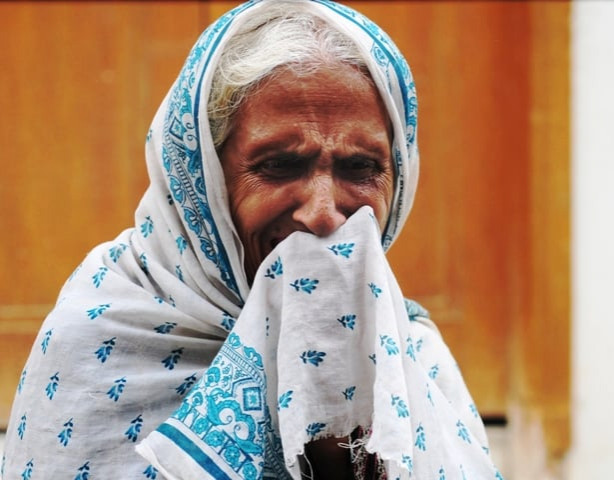In Pak Colony, WAF records tales of terror and torture
Women’s Action Forum conducts a fact-finding mission, will present report to parliamentarians.

Her elder son, Kareem, has spent his days visiting government hospital morgues and police stations to find his missing brother, but to no avail. “My mother has a psychiatric disorder and the wait is making her worse”, he said, with a pained expression.
In Pak Colony, the bodies of missing and kidnapped family members that are found in a gunny bags on the roads, in hospitals or morgues, or are identified on television are so mangled they are not even recognisable by their closest relatives.
Kareema is another mother who has lost her 35-year-old son. He was killed in the afternoon one day, when he left his house to buy milk for his three-year-old daughter.
There were other victims of all sorts in the colony; family members of those who were killed, those whose brothers, husbands and sons were missing and also a handful of those lucky men who survived the brutal torture or had managed to escape.
These tales of loss and sorrow are being recorded by the Women’s Action Forum, which arranged a fact-finding visit to the area. The group has visited Chakra Goth and will visit other conflict-affected areas, including Lyari, ad plans to present a report to parliamentarians.
“They were not related to any political party” said a howling Naseema. “I cannot sleep because I dream of my dying son asking for water, they must have refused him water too in his last moments” she said. “They didn’t even allow us to take the body home, saying that it would result in a pile of dead bodies.”
As if mourning with the women, Pak Colony seemed silent and almost serene. But the residents said this ‘peace’ is fleeting. At any moment the terrorists would appear, pick up and kill a target, mangle the body and dump it in a gunny bag, accompanied by a scribbled note bearing the words “aman or jang?” (war or peace)
Careful to not mention names of any political party, the residents called it the ‘gang war’. Pak Colony covers areas like Dhobi Ghat and Golimaar and adjacent areas house members of all ethnic groups. However, those targeted in the area comprised the Urdu-speaking majority.
Danial was one of the lucky few who managed to escape his captors. He was travelling to his house in a rickshaw when it was stopped by a group of men who beat up the driver, a Pathan. Recognising him as an Urdu-speaker, they said he should be killed for who he was. Danial’s hands were bound and he was taken to a side lane. He luckily managed to break free and run, and did not even stop when they threatened to fire. The kidnappers did not shoot and he reached home with only and an injured leg, said his beaming wife.
But while Danial will recover from his injury, 20-year-old Raheel’s life changed this June. On his way to work, he was hit by a bullet in the arm that travelled further to to his backbone, paralysing his lower limb. When he gained consciousness a month later, he realised that the loss of his leg had also resulted in the loss of his family’s fortunes, as they had spent considerably on his medical treatment.
A neighbour related the story of young Hammad, who had been brutally cut with blades. The neighbour filmed Hammad’s injuries to show as proof of the assault. His scared family has sent Hammad to Punjab now.
Despite the numerous painful tales, residents refrained from blaming ethnic groups. “We have all lived together in this area and still continue to do so, so much so that my husband had Baloch visitors when he was injured” said Maham, Danial’s wife.
“It’s someone else who is killing and chopping people! Who is it?” said a woebegone Naseema. Almost everyone seemed to understand the war is not ethnic but political.
Published in The Express Tribune, August 31st, 2011.


















COMMENTS
Comments are moderated and generally will be posted if they are on-topic and not abusive.
For more information, please see our Comments FAQ